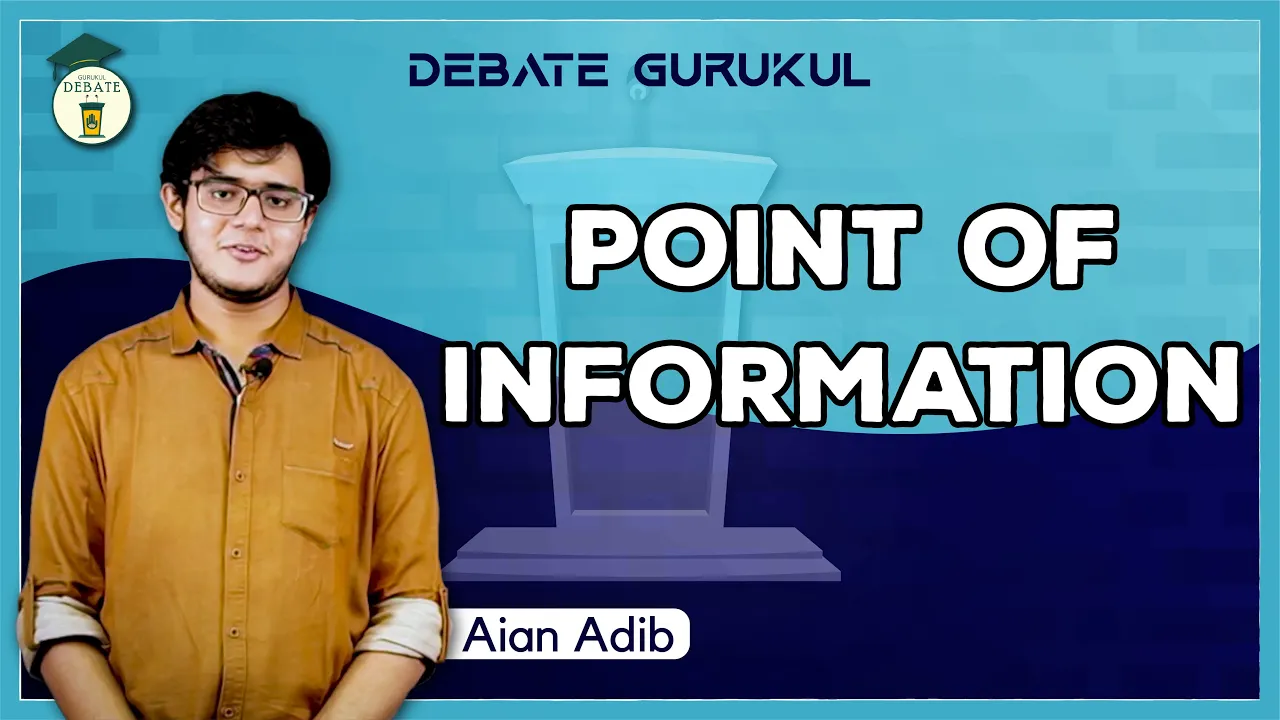Point of Information by English Debate Gurukul. “Point of Information” is the topic of today’s video. We are currently publishing a series called “Introduction to English Debating”. “Point of Information” is the 14th class of our new series “Introduction to English Debating”. In this series, you will get to know all about English Debating.
Point of Information
In competitive debate, most commonly in the World Schools, Karl Popper, and British Parliamentary debate styles, a point of information (POI) is when a member of the team opposing that of the current speaker gets to briefly interrupt the current speaker, offering a POI in the form of a question or a statement. This may be as a correction, asking for clarity, or just a plain question.

As in some debating styles, such as World Schools Style, they often may not be offered in the first or last minute of any speech (known as protected time), or during reply speeches. Points of information may never be offered to a member of the same team.
Points of information are an important part of any debate that includes them, as they offer a much greater degree of engagement between teams. In some styles of debate, such as the British Parliamentary Style, they take on an even greater importance, as teams are forced to use them in order to maintain their relevance during a debate.
Furthermore, they allow speakers to demonstrate greater wit and presence of thought than is generally possible in a speech, as they are required to respond instantly to prepared points from their opposition in a logical way.
A point of information is also a request for information from the current speaker, in Robert’s Rules of Order. The 11th edition of Robert’s Rules, published in 2011, changes the name to request for information to clarify its purpose.
Points of information may be offered in several forms, depending on the style of debating being used. The two most common of these are:
- Points of information, where a debater simply offers an argument or question to the speaker.
- Points of misrepresentation, which allow the opposing team to point out that the speaker is misrepresenting its argument or setting up a straw man. This point does not even require the speaker’s acceptance, as the mere offer of a point of misrepresentation highlights that the speaker is unfairly treating their opposition.
Point of Information Details :
